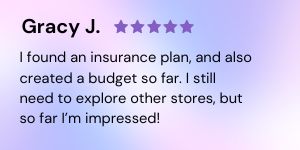A Comprehensive Guide to Comprehensive Insurance
Comprehensive insurance could be more accurately titled “Insurance that, when combined with collision insurance, is generally far more comprehensive than any of the other types of policies available.” Then again, that would be a bit wordy.
A comprehensive insurance policy helps pay for damage to your car or truck from events other than a collision. If you’re parked outside and a tree falls onto your vehicle, you’d be covered. Someone steals your car and leaves it abandoned and torn up behind the Quikie-Mart, and you won’t have to pay for repairs entirely out-of-pocket. Many lenders require both collision and comprehensive insurance as part of the financing arrangement, but beyond that, it’s entirely optional on your part.
Generally speaking, there are six major types of car insurance:
Some form of this is required in most states in order for you to drive legally. It pays for damage to the other guy if you’re in an accident and you’re determined to be legally responsible. Coverage is typically divided into “property damage” and “bodily injury,” which are pretty self-explanatory. Liability coverage doesn’t cover you, your vehicle, or anyone in your car.
This is sometimes called “no fault insurance” because it’s designed to help pay for your medical expenses in case of an accident no matter who was at fault. Most policies cover other members of your household and any passengers you may have in the car at the time of the accident.
All insurance varies from state to state, but personal injury protection (PIP) varies more than most.
This type of coverage helps with medical expenses in case of an accident but tends to be a bit less extensive than most PIP policies. MedPay, as it’s often called, is intended to supplement existing health insurance plans or offset costs for uninsured passengers or family members. It can cover copayments and deductibles and the like related to injuries sustained in an automobile accident.
This coverage specifically protects you in case you’re in an accident caused by someone else without adequate coverage themselves. Their liability won’t pay for your medical bills or the damage to your car or truck if they simply don’t have the money. While you’re fighting it out in court, uninsured or underinsured motorist coverage can help you get your vehicle fixed and get back on your feet.
This covers damage to your car or truck which results from an accident, whether anyone else was involved or not. If you back into a tree or slide off the road into a pit of lava, this will help repair or replace your vehicle. Most states don’t require you to have collision coverage, but if you finance your vehicle the lender will almost certainly require it to protect themselves as much as to protect you.
What Does Comprehensive Insurance Cover?
The answer to that starts with a disclaimer. While there are some pretty safe general rules about comprehensive insurance, every policy, every company, and every state’s rules and regulations are different. Read on to get a good idea of what most comprehensive insurance policies do and don’t cover, but always ask questions and read the small print before agreeing to a specific policy for yourself.
Most people are decent enough when it comes to one-on-one interactions. It doesn’t take many exceptions to ruin your day, however. If someone damages your car intentionally or accidentally – by keying it, sitting on the hood knocking back a few cold ones with friends, egging it by mistake because it looks just like that one guy’s car from high school, or trying to break in by smashing a window or jimmying the door, a decent comprehensive policy can get you fixed up.
Even worse, if they successfully steal your car (and it’s eventually recovered), a comprehensive policy can repair whatever damage they did to it along the way. (You’ll have to adjust the seats and change all the radio stations back yourself.)
In times of natural disaster, there are far worse things that can happen than your car or truck being damaged. Still, assuming everyone else is OK when it’s over, it’s nice to be able to get your vehicle taken care of. Hurricanes, tornadoes, high winds, and the various sorts of flying or falling objects which often result, can be hard on your car.
Sometimes it’s mostly aesthetic (like that hail damage that looks far worse to you than it does everyone else). Other times it can be far more severe (like that limb through the windshield or the second story bathroom that’s now in your back seat). Either way, the right comprehensive policy can get you back on the road so you can focus on more important things.
All insurance varies from state to state, but personal injury protection (PIP) varies more than most.
OK, it may sound a bit far-fetched, but animals are sometimes capable of doing some pretty weird things to our stuff. Obviously, if you’re a nature person – camping, boating, hiking, etc. – you never know what might wander up and smell food, or people, or people-as-food, on your car or truck and have a go. Other times, big scary things may simply not like having you around.
Even pets and neighborhood critters can sometimes get some strange ideas about the proper role of an automobile. Those little claws, teeth, or (yikes!) urine can get seriously destructive very quickly.
Nothing funny about this one. Fire is one of the most fundamental elements of civilization and the right campfire or carefully tended blaze in a living room fireplace can be beautiful and warm. Fire can help feed us (you know, by cooking food over it) or keep us alive (by not freezing, for example). That doesn’t change the fact that fire can be one of the most destructive forces in the world. It takes so little to start one and so much to control it once it’s gained momentum.
Whether the damage is done from outside the vehicle (from something already on fire) or due to something careless or catastrophic within, the right comprehensive insurance policy can help you deal with the financial part of the problem.
Depending on where you live, your comprehensive insurance policy may cover flood damage as well. Insurance is weird when it comes to flooding, so you’ll want to ask about this when considering policies.
Most protestors are peaceful enough. More often than not, you have to go out of your way to get in the middle of a well-organized march or demonstration. Riots, on the other hand – well, who knows anymore when those will pop up or what the issue might be? Ideally, of course, the best way to avoid damage to your vehicle due to riots or protests is to drive the other way.
In the rare event, you find your vehicle parked in the middle of an outbreak of violence or property damage, or you take a wrong turn and find yourself sending some very wrong messages to people already not in a good mood, the most important thing is to take care of yourself and your loved ones. If you have comprehensive coverage, however, whatever damage is done to your vehicle by the crowd is covered.
What’s Not Covered By A Comprehensive Insurance Policy?
This is where the name can be a bit deceiving. A comprehensive car policy assumes you already have collision insurance. Comprehensive policies generally do NOT cover damage done by running into someone or something else while driving, or them running into you while they’re driving a vehicle. It doesn’t cover medical expenses for yourself or your passengers. In some ways, it’s different than any other sort of vehicle insurance policy.
In short, comprehensive coverage is for all the stuff other policies don’t cover. If something can be covered by a more traditional car or truck insurance policy, it’s probably not covered by comprehensive insurance.
What Should I Consider Before Purchasing A Comprehensive Insurance Policy?
There are four big decisions you’ll have to make before getting an auto insurance quote.
- What kind of coverage do you need?
- How much coverage should you get?
- What sort of deductible should you choose?
- Who should you purchase your insurance from?
The most common types of coverage I summarized above. There are others, but these address the most needs of most drivers.
As to how much coverage you need, that depends on your financial situation and the value of your vehicle, plus the requirements of whatever state you call home. At the bare minimum, you’ll have to purchase the mandated liability coverage determined by your state’s laws. If you’re financing a vehicle, you’ll probably be required to have enough insurance to fully guard against anything that might happen. If your car or truck is paid for, ask yourself what it would cost to replace it with something comparable. If full coverage would cost you more than that amount in two years or less, maybe stick with the minimum.
Obviously, when it comes to damage to people and other people’s property, you want to have more coverage if you can afford it. Some of this is to keep you out of legal trouble, but mostly it’s just the right thing to do.
Choosing a deductible for your car insurance isn’t so different from the same decision with health coverage. If you can afford a higher deductible, you can get the same policy for a lower premium. If something happens, of course, you’ll be out of pocket for the full amount of the deductible. If you’re in reasonably good financial shape and need insurance primarily to help cover you in the event of a true catastrophe, a higher deductible is probably better.
Compare Insurances. Find the Best for You. Insurry Can Help.
How Do I Choose An Insurance Company?
The good news is that in the 21st century, you have more options than ever before when it comes to automobile insurance. The bad news is that in the 21st century, you have more options than ever before when it comes to automobile insurance. It can be a little overwhelming, honestly.
Most states regulate insurance within state boundaries fairly thoroughly. That doesn’t mean that all companies are the same, or that all policies work the same way, but it does mean that most companies are at least playing by most of the same rules. In theory, at least. That frees you up to largely choose your insurance based on who can provide the coverage you need on the terms you want at the most reasonable price.
So how do you choose? Well, those funny commercials are pretty cool. There are a few which I’d admit are better than the actual programs I’m watching when they come on. That’s great for name recognition, but it doesn’t really tell you anything about the company itself or whether it’s the best fit for your circumstances and needs. Maybe one of them is – having good commercials doesn’t make you a horrible choice any more than it makes you a great one. But we encourage you to dig a little deeper.
Choose the Right Insurance Company With Insurry
That’s where Insurry might be able to help. You may be familiar with our sister sites, Loanry and Cashry. What we figured out long ago was that most people are quite capable of taking more effective control of their personal or small business finances and making better financial decisions if only provided with the right information, opportunities, and connections. So we did what seemed to us like the most reasonable thing in the world – we started our own database of online lenders and lenders with an online presence. We monitored their interest rates and other terms, documented which sorts of loans they excelled at and which sorts of clients they served best. Most of all, we tracked customer satisfaction so that as time went by, we had a pretty good idea of what was working best for which sorts of customers.
Insurry is designed on a similar model. We don’t sell insurance, nor do we wish to. What we can do, however, is help you find the insurance provider who best matches your needs and goals – and who offers you the most competitive rate while doing it. After that, it’s their job to woo you and earn your business. All we ask is that you let us know how it goes so we can add that information to our database and continue making the best possible connections.
How Can I Compare Insurance Options?
Our site offers several tools for comparing car insurance rates, but as cool as those are, we’re even more excited about what’s coming next.
Why should shopping for car insurance be complicated? This is the 21st century, after all. You can pull up almost any movie ever made in a few short steps on almost any connected device, or download any song ever recorded for less than the cost of a fountain drink at the nearest convenience store. You can buy almost anything, new or used, from a dozen different sites online in less time than it takes to microwave popcorn – and compare prices from a half-dozen different websites before the first kernel pops.
We don’t see any reason that comparing car insurance options has to work the same way it did for your parents when nothing else does. Nor should anything else. If you’ve got a tablet, laptop, or cell phone, you should be able to manage all of your personal or small business finances easily from anywhere you happen to be.
Insurance Comparing Tips
Here are a few things you’ll be able to do as easily as you pull up someone’s TikTok video or complain about your elected representatives on social media:
- Compare current insurance options for your vehicle or anything else
- Track and compare rates based on a range of deductibles and coverage ranges
- Review your existing insurance premiums, when your payments are due, and relevant details about your policy
- “Zoom in” on specific policies to get the details important to you without having to read through pages and pages of small print
- Make a selection and lock in the policy you choose
- Manage your payments on that policy and track your spending so that it stays organized from month to month
Conclusion
The best technology doesn’t make your decisions for you, it simply makes your decisions easier. More information and efficient implementation save you time and money and stress – and we could all use a little more of the first two and way less of the third.
The official release is almost here. In the meantime, let us know what we can do to help you right now today.







